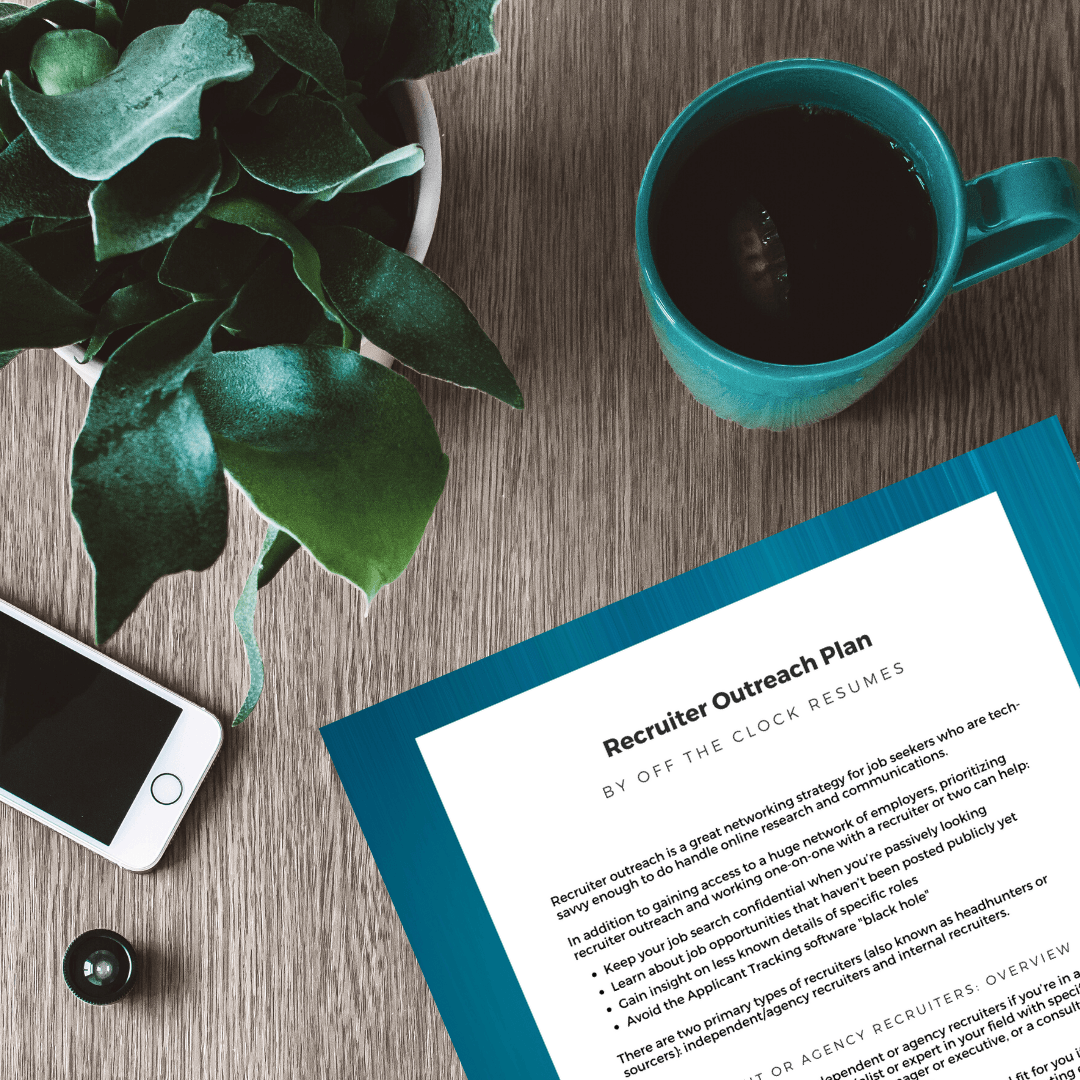
Best Answers To Common Behavioral Interview Questions
How good are you at backing up your skills in an interview?
Behavioral interview questions present scenarios and require that you provide a specific example from your work history. Interviewers ask behavioral questions to evaluate how well you solve problems and challenge you to support the skills you listed on your resume with specific examples from your work history.
If interviews are coming up and you want a stronger overall strategy, this is for you. Job Search Accelerator helps you connect your experience to what employers are looking for. Explore Job Search Accelerator →
For this installment of our Best Answers series, we're sharing our proven strategies for answering common behavioral interview questions.

This blog contains affiliate links, meaning I may receive a small commission (at no cost to you) if you subscribe or buy something through the links I share. I only share links to products or services that I use myself or absolutely love!
Top Behavioral Interview Questions
There is no simple answer to how to answer behavioral interview questions; however, you should practice identifying which skills relate to each of the top behavioral interview question scenarios. Your communication skills and ability to solve problems on the spot will be tested!
Q. Tell me about how you have handled working in a stressful environment or while under pressure to meet a deadline.
A. Employers are interested in how you manage your time, prioritize tasks, and maintain your composure in the workplace. Answering this question will require you to have a specific example in mind where you can briefly describe the situation, identify the actions you took, and the results directly produced by your actions.
Example: "While working for a law firm as an administrative clerk, I was asked to help with a large mailing that had to go out by the end of the day or else there would be consequences for the client. I was responsible for printing, stuffing, and adding postage to the mailings before my supervisor could drive them to the Post Office before 6 PM.
To avoid becoming overwhelmed and still meet our deadline, I worked on adding postage to the envelopes while the documents were printing. I also offered to stay 30 minutes after closing to make sure the project was completed and handed off to my supervisor by 5:30. We were able to get the mailing done and to the Post Office in time."
Q. Describe a time when you faced a conflict while working with another co-worker or on a team and how you handled it.
A. Employers know that conflict is inevitable, but how you handle situations in the moment may affect whether or not you are a good fit for their team. It's extremely important to answer this question without speaking poorly of another co-worker, so focus on positive results when describing how you solved a specific problem rather than focusing on the conflict.
Q. Tell me about a time when you had to work with a co-worker whose personality was very different from yours.
A. Personalities clash. Micro-managers will have to work with independent co-workers. Creative professionals will struggle to explain their choices to analytical professionals. The key to answering this behavioral interview question is to describe how you compromised to make the partnership work.
Example: "I was asked to assist a co-worker who had been working with the company for over 15 years. She didn't communicate her ideas very clearly and acted as though I should know her expectations and nuances. Unfortunately, I'm not a mind reader and I respond best to clear direction. I chose to not take her annoyance personally and asked as many questions as I could. We were able to work together despite our differences in communication and finish her project that day."
Q. Describe a time when you made a mistake and how you handled it.
A. Show employers that you take responsibility for your actions and that you own your mistakes. Whether you made a small data entry error or forgot to run a report, identify the mistake you made and what actions you took to alleviate any consequences to the business. Your answer should include admitting fault to your supervisor, resolving the issue, or handling the direct or indirect consequences.
Q. Tell me about a time when you made a decision that negatively impacted others around you and how you handled it.
A. You have received negative but still constructive feedback from your co-workers and supervisors in the past. Draw on these experiences to describe how you react to feedback. Did you correct a poor decision based on feedback from others? How did you grow from this experience? How did you settle the issues with your coworkers? These are questions you should specifically address.
Example: "When working as a Front Desk Agent, I was having a hard time getting in touch with housekeeping to find out which rooms were cleaned and ready for early check-ins. I chose to leave the front desk and find the Housekeeping Manager in her office to discuss the issues. When I returned, I found out that a large group arrived for check-in and my co-workers were overwhelmed and frustrated from being understaffed.
I apologized for leaving the desk understaffed and informed them that I would find another staff member to help in situations like this if it were to happen again. I learned that my co-workers were really depending on me and I need to make my primary job function my priority in situations like that."
Q. Describe a time when you did not meet a customer's expectation, specifically what happened and how you tried to resolve the issue.
A. Since pleasing everyone is unrealistic, describing how you applied your strengths in customer service and conflict resolution will show employers that you are focused on representing the company or organization in the best way possible. Without speaking negatively of a customer, you should identify what the root cause of the problem was and how your compensation reduced the tension.
Q. Tell me about how you handle disagreements with a supervisor.
A. Employers don't expect you to agree with your superiors all the time; however, you are expected to be respectful and submissive (within the confines of the law) in the workplace. Describe a specific disagreement, how you respectfully explained your opposing position, and what resulted from the disagreement. If your input didn't change the supervisor's mind, make sure you explain that you still followed his or her leadership.
"A hotel I worked for replaced my supervisor with someone who had worked in a sales-driven role previously. Our team had always been more customer-driven and were given freedom to use the petty cash fund to purchase flowers for customers visiting our hotel for funerals. Our new supervisor decided to eliminate our petty cash fund to help cut costs.
I decided to address the issue by asking for a private meeting with him, explaining why we previously used the petty cash fund to do something special for grieving guests, and identifying that our team's morale was increased when we had the freedom to improve a guest's stay in this way. He didn't agree that it was worth the extra cost to the department and asked that I encourage the other agents to support his decision. While I disagreed with the change, I respected his authority."
Q. Describe a time when you failed and how you dealt with the situation.
A. Discussing a failure is always challenging, but it can be especially challenging to describe in a job interview. This is not one of those times when you should turn a "weakness into a strength" or, in this case, "turn a failure into a hidden success." Employers expect you to be accountable for your actions and describe what you learned from the experience.
Interview prep is easier with insights and support. Join Career Risers for guidance as you apply, prepare, practice, and seal the deal. Join Career Risers →
Related Articles
-

4 Personal Assistant Interview Questions and Answers
Guest blogger Liza Griffen, co-founder of Tyler Griffen, equips you with a deep understanding of typical interview questions and practical answers to help you showcase your skills effectively whether you're aiming to impress in your first personal assistant role or looking to step up in your career.
-

Crack Your Dream Company Interview
Guest contributor Nandkishore Rathi shares practical tips, strategies, and insightful advice from career experts to help you shine during written and verbal interviews.
-

Don't Panic: 15 Ways To Prepare For A Video Interview
Guest blogger Daniel Boyce with Aware Recruiter delves into 15 actionable steps to prepare you for a stellar video interview experience whether you're a seasoned professional or just stepping into the job market.
-

5 Signs That A Company Values Employee Wellness And Safety
Guest blogger Sharon Feldman shares how asking questions about wellness and safety in your interview could give you insight into a company’s values.
-

Preparing for Different Interview Formats: Phone, Video, and In-Person
Interview Coach Ellie Hoekman shares specific preparation steps for phone, video, and in-person interviews.
-

How To Ace Your Interview With A Staffing Agency
Guest blogger William Powell shares how to prepare adequately for an interview with a recruiting agency to increase your chances of landing your dream job.
-

5 Things You Need To Know About Job Interviews To Succeed
Guest blogger Marcus Ralph shares 5 tips on what you can do before a job interview to be best prepared to make a solid first impression and land the job.









